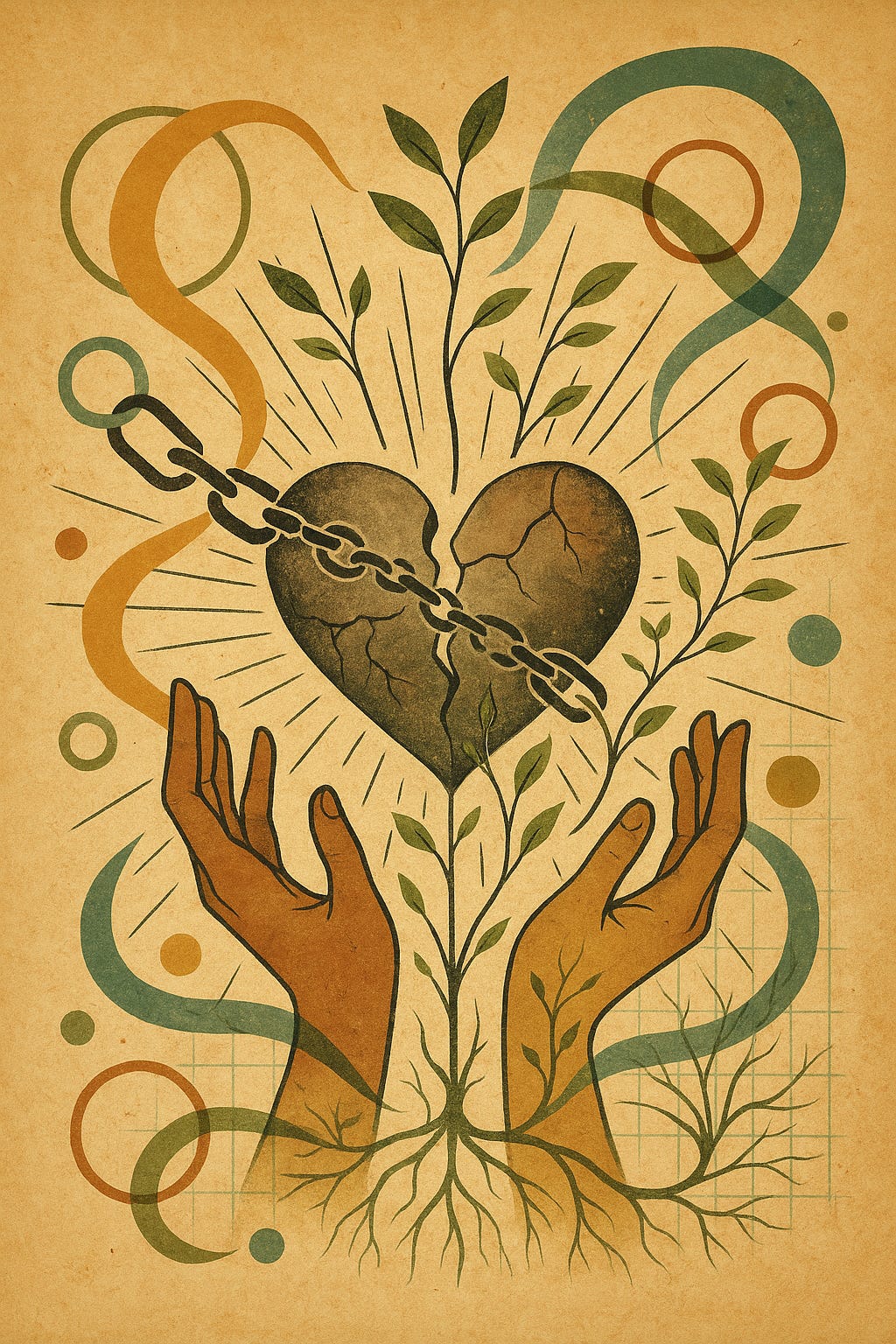Shame is not a strategy -
Forgiveness is.
A small fraction of humanity—roughly 15%—has been responsible for the majority of emissions, consumption, and ecological destruction. That includes most people with passports, credit cards, education, and stable Wi-Fi. That includes us.
We inherited broken systems—economic, social, cultural—that extracted life from people and planet, monetized attention, outsourced suffering, and sold comfort at the cost of collapse. The damage is undeniable. The privilege is real.
And yet, staying stuck in guilt won’t get us anywhere.
We’re not going to build a life-centered civilization by resenting the people who came before us. Nor by hating ourselves for being born into systems we didn’t design. The nervous system doesn’t work like that. Neither does culture. And certainly not transformation.
Because what the research shows—clearly—is that forgiveness isn’t about them. It’s about us. Our health. Our coherence. Our ability to move forward.
Unforgiveness keeps the body in a threat state. Higher cortisol, reduced immune function, disrupted sleep, increased inflammation. The past loops through the mind, and the body pays the price. Meanwhile, relationships break down, creativity dries up, and our capacity for trust and collaboration dissolves.
Forgiveness, by contrast, changes the whole system. It brings the parasympathetic nervous system back online. Heart rate stabilizes. Mood improves. Cognition clears. It doesn’t make the harm disappear—but it makes healing possible. Individually, relationally, culturally.
And that matters—because we’re not here to fight for a better world. We’re here to nurture one into being. To grow it. To midwife it.
But you can’t nurture anything if you’re emotionally gridlocked. If your hands are clenched with rage. If your body is still in fight-or-flight because of something your grandfather did, or your government did, or you did five years ago when you didn’t know better.
Forgiveness isn’t forgetfulness. It’s not passivity. It’s not denial.
It’s a decision to stop handing your nervous system over to history.
To metabolize pain without getting stuck in it.
To make space in your inner world so something new can emerge.
We forgive the generations before us—not because they were right, but because they were born into systems that shaped their choices just like we were. We forgive them so we can stop carrying their weight. So we can compost the stories of domination and make room for reciprocity, regeneration, repair.
We forgive ourselves—for all the ways we’ve numbed out, bought in, looked away. For the plastic, the flights, the silence. For the disconnection. We forgive, not to let ourselves off the hook, but to get back in the game.
Because guilt is not a fuel source.
And shame is not a strategy.
Forgiveness is how we clean the emotional slate. It’s how we access joy again. Trust again. Imagination again. The things we actually need to remake this world.
So start there.
Forgive the ones who hurt you.
Forgive the ones who couldn’t love you the way you needed.
Forgive the ones who built walls instead of bridges.
Forgive the systems.
Forgive the silence.
Forgive the survival strategies.
And then get to work—clear, grounded, and open.
Because the future won’t be built on blame.
It’ll be built by people who’ve learned how to let go.


